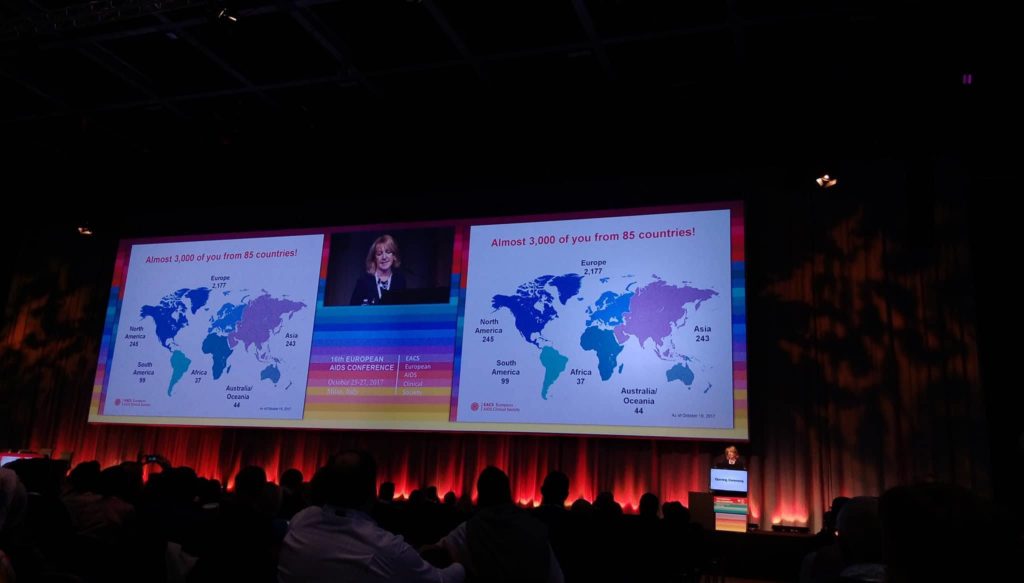Today in Milan opened the XVI European AIDS Conference, taking place on October 25-27.
For the discussion of the last results of the scientific and clinical research, the presentation of new approaches to treatment and prevention activities aimed at combating HIV/AIDS, the scientific employees, activists, and representatives of KAP communities from all European region gathered on the conference site in Italy.
To share experience, and to present the achievements of the regional program “Partnership for equitable access to HIV care continuum in EECA for all who need it” the ECUO delegation at the conference include: the president of ECUO – Vladimir Zhovtyak; the specialist on strategic information – Armen Agadzhanov; and co-chairman of the ECUO Parents Union – Evgeniya Smirnova.
This year, the following discussions will be at the conference:
- new EACS Clinical Recommendations on HIV treatment;
- up-to-date recommendations on pre-exposure prophylaxis (PrEP);
- progress in the treatment of viral hepatitis C co-infection among PLHIV;
- new strategies for antiretroviral therapy;
- «chemsex», HIV prevention among gay and bisexual men;
- treatment and prevention of cancer and other concomitant diseases.
As noted by the EACS (European AIDS Clinical Society) Conference organizers, from the time of holding the first European AIDS Clinical Conference, 27 years ago, there have been significant changes in the clinical landscape of HIV infection.
For the recent years, there is a “normalization” and increase in duration of PLHIV life that approximates the average life duration of the general population, in the countries of West Europe the morbidity level is reducing and an active implementation of the strategy of universal access to ART just after the diagnosis is happening. Still, there are challenges, a series of which will be considered during the conference discussions. Among them: a long-term forecast of the effectiveness of ARVs, the challenges associated with co-infection (TB and viral hepatitis) and other concomitant diseases, and another most critical issue of unequal access to HIV services in different countries of Europe.

